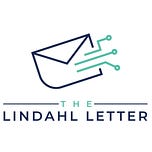Welcome back to another edition of The Lindahl Letter. It’s week 175, and we’re diving into the fascinating topic of universal quantum computation. This is an area where the boundaries of theory and practical application intersect, offering both incredible promise and immense challenges. If you’re tuning in to this podcast for the first time, welcome aboard. For regular readers and listeners, you already know this is a space where we examine complex topics with an eye on clarity and relevance.
At its core, the concept of a universal quantum computer is as ambitious as it sounds. It’s the quantum computing equivalent of a general-purpose classical computer—think of it as a machine that can perform any quantum operation, given enough time and resources. The analogy to the classical Turing machine is apt, but the quantum realm is a different beast altogether. Where classical systems rely on bits flipping between 0 and 1, quantum systems leverage qubits, which exist in superpositions and can be entangled in ways that fundamentally alter how computations unfold.
Achieving universality in quantum computation boils down to the idea that we can simulate any quantum process using a combination of quantum gates. These gates are the building blocks of quantum circuits, manipulating qubits in ways that enable properties like superposition, entanglement, and interference. In practice, a small set of gates—such as the CNOT gate combined with single-qubit operations like the Hadamard and Pauli gates—forms what’s known as a universal set. With these, any quantum operation can theoretically be approximated to arbitrary precision.
Of course, theory and practice are rarely perfect companions. The current landscape of quantum computing is dominated by what’s known as Noisy Intermediate-Scale Quantum (NISQ) devices. These systems are powerful but imperfect, constrained by issues like qubit fidelity, error rates, and limited coherence times. The leap to universal quantum computation requires addressing two major challenges: error correction and scalability. Quantum error correction is a monumental task in itself, demanding additional qubits to safeguard against the natural noise and decoherence that plague quantum systems. Scalability, meanwhile, demands not just more qubits but better qubits—ones that can operate with higher fidelity and stronger connectivity.
Despite these hurdles, progress is being made. Theoretical frameworks, like the Church-Turing-Deutsch principle, assert that any physical process can be simulated by a universal quantum computer. That idea has fueled decades of research and development. On the practical side, companies like IBM, Google, and IonQ are racing to push the limits of what quantum systems can achieve. IBM’s ambitious roadmap to a million-qubit machine is a bold declaration of intent, and the algorithms already developed for quantum systems—like Shor’s algorithm for factoring large numbers—hint at the transformative potential waiting to be unlocked.
It’s easy to see why universal quantum computation captures the imagination. The implications stretch far beyond the confines of academia or industry, touching fields as diverse as cryptography, materials science, and optimization. Yet, the path forward is long and uncertain. It’s not a matter of if we get there but when—and how the journey reshapes the landscape of computing along the way.
Thank you for taking the time to explore this frontier with me. If you’ve made it this far, I appreciate your curiosity and engagement. As always, stay curious, stay informed, and I’ll see you next week for another deep dive.
What’s next for The Lindahl Letter?
Week 176: Quantum Computing and Advances in Time Crystals
Week 177: The Attention Economy: Why Your Focus Is Under Siege
Week 178: Inside the Mind: The Science of Focus and Distraction
Week 179: Designed to Distract: How Technology Grabs Your Attention
Week 180: The Focus Formula: Prioritize What Truly Matters
If you enjoyed this content, then please take a moment and share it with a friend. If you are new to The Lindahl Letter, then please consider subscribing. Make sure to stay curious, stay informed, and enjoy the week ahead!






Share this post